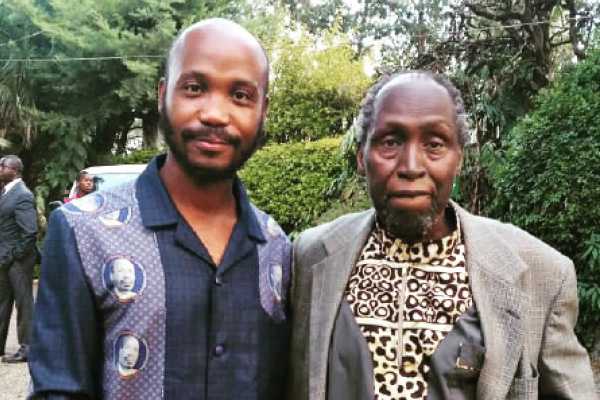Colonised African classroom sparks conversation
The much-anticipated new book, a manifesto called Dear Upright African was pencilled to be launched yesterday (February 28th) in New York City. The book is penned by Botswana’s very own Donald Molosi. In the book, the actor and writer shares his experiences attending school in Africa and calls for the decolonization of the African classroom.
This manifesto, according to Molosi is his most ambitious work yet. According to a press release, the book advocates for education reform and calls on the African governments to preserve our African languages. Beyond entertaining to read, the book is a manifesto for putting African history and languages in the African classroom, says the press release. Ahead of the release, Molosi has been intensively working around the clock to raise awareness about the book, and the Upright Movement. He is currently in Kenya where he has been meeting with different leaders, and having important discussions around this topic.
One of the thought leaders that he met is the one and only, award-winning writer Ngugi wa Thiong’o. The two met at Ngugi’s home village of Limuru. Speaking from Nairobi, this is what Molosi had to say, “With my new book I am energizing a continent-wide conversation about decolonizing African classrooms. It is a revolution that was begun by Prof. Ngugi’s generation and it will complete in my generation. Young Africans have run out of patience for the colonized curriculum because they are now aware that it creates their unemployment. Botswana, for instance, has one of the most colonized curricula in Africa. That is a crisis. Our children deserve better than to suffer from unemployment that government creates on purpose.”
He explains that they spoke about his work with Prof. Ngugi concerning decolonization. His message to me was clear: Keep Going! One thing he said that stayed with me was that my fear for our disappearing African languages is valid. He encouraged me to keep this important conversation about decolonization alive. That, for me, was a blessing from him to me as my African elder before the February 28 release of my book,” he explains in the press release. According to Molosi in an interview with this publication, one of the objectives of his travels is to bring awareness to the problematic curriculum in Africa. Beyond that, he explains that he is having key conversations with thought leaders in every country for them to internalise the gravity of the issue. “I am still on my travels, but meeting Prof. Ngugi was extremely helpful in a situation within East Africa, the conversation of decolonizing,” he explains.
He further says that the rest of the continent identifies with exactly the same colonial problems that he talks about in the book. “The other African leaders I have been meeting are genuinely shocked that Botswana is this resolutely colonial,” he explains. He further highlights that one of the highlights regarding the book is launching the book in Germany. This, he says, will give him an opportunity to speak to an European audience about the way Europe continues to impoverish Africa in knowledge, consciousness and other resources. “I want them to know that we know they are robbing and controlling us, and it must end. I will engage with diaspora Africans in Germany to tell them that we need their voices and efforts for education decolonization that Africa deserves,” explains Molosi. All the travels are sponsored by the Upright African Movement.
When it was first presented as a 2017 TED talk, Dear Upright African created a lot of conversation. In it, Molosi proposed that African schools should teach African history to which a certain teacher at Maru a Pula School proceeded to attack and insult Molosi online. Although Molosi himself never responded to the attack, many Batswana labelled the attack against Molosi as a racist one as there was nothing wrong with his suggestion. Molosi says of the attack, “The world was watching that racist rant on the internet. People all over the world were disappointed to see how bad the situation in Botswana is. So I am back with this book because I desire change and yes, I am impossible to intimidate.”
The book boasts a glowing foreword by the legendary Tsitsi Dangarembga, author of Nervous Conditions, one of the most important writers to ever come out of Africa. In her remarks about Molosi’s work, Dangarembga says that, “Palpably outraged, Molosi reminds us - sharing vivid examples - of how the metaphysical and physical engagement of empire with the African continent formed a carefully orchestrated strategy whose end result was to inflict large numbers of Africans, including African elites, with a chronic, debilitating self-hatred. Drawing form his extensive reading on the subject, Molosi offers practical remedies for the devastating crisis he chronicles.”
In addition, Kenyan literary superstar Binyavanga Wainaina whom TIME Magazine crowned one of the most influential 100 people in the world says of Dear Upright African, “In this manifesto, Donald Molosi shows us what a decolonized Africa would look like. This matter is vital for people in school today. It is this sort of activism that our continent needs now.”




